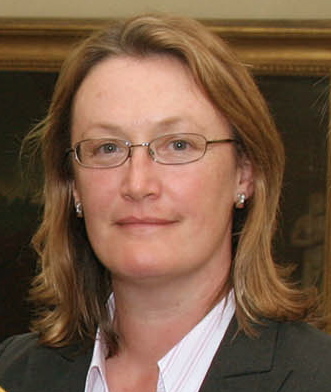How people reason about counterfactual explanations
November 21, 2022 11:15 AM - 12:00 PM EST

Ruth Byrne
Professor of Cognitive Science, Trinity Inst. of Neurosciences (TCIN)
Trinity College Dublin, University of Dublin, Ireland
Website: https://www.tcd.ie/research/profiles/?profile=rmbyrne
Abstract: People often create explanations about how an outcome could have turned out differently, if some preceding events had been different. In this talk I focus on the cognitive processes that underlie the construction and comprehension of counterfactual explanations and causal explanations. I discuss recent experimental discoveries of differences in how people reason about counterfactual and causal assertions, including evidence from eye-tracking experiments of differences in the tendency to consider multiple possibilities, and evidence from sentence-stem completion experiments of differences in the content of such explanations. I consider some of the implications of these discoveries for the use of automated counterfactual explanations for decisions by Artificial Intelligence (AI) decision support systems in eXplainable AI (XAI). I describe empirical findings of differences in people’s subjective preferences for counterfactual and causal explanations for decisions by AI systems in familiar and unfamiliar domains, and people’s objective accuracy in predicting such decisions or making their own decisions. I argue that counterfactual explanations confer several cognitive benefits despite their potential cognitive costs.
Bio: Ruth Byrne is the Professor of Cognitive Science at Trinity College Dublin, University of Dublin, in the School of Psychology and the Institute of Neuroscience, a chair created for her by the university in 2005. Her research is in the cognitive science of human thinking, including experimental and computational investigations of reasoning and imaginative thought. She has published over 100 articles in journals and her books include, 'The rational imagination - how people create alternatives to reality' (2005, MIT press), 'Deduction', co-authored with Phil Johnson-Laird (1991, Erlbaum Associates), and most recently, 'Thinking, reasoning, and decision-making in autism', co-edited with Kinga Morsanyi (2019, Routledge). She is the former Vice Provost of Trinity College Dublin (the 68th Vice Provost since the university was established in 1592; the first was Henry Ussher in 1594). Prior to that she was the head of the School of Psychology, and she has also served as deputy director of the Institute of Neuroscience. She is a senior editor for Cognitive Science, journal of the US Cognitive Science Society, and former chair of the European Research Council's advanced grants panel on the human mind. Her BA degree was awarded by University College Dublin in 1983 and she completed her PhD at Trinity College Dublin in 1986. She subsequently worked as a postdoctoral researcher at the MRC Cognition and Brain Sciences Unit in Cambridge, and as a lecturer in the psychology department at the University of Wales at Cardiff, and in the computer science department at University College Dublin. She is a member of the Royal Irish Academy, a Senior Fellow of Trinity College Dublin, and a Fellow of the US Association for Psychological Science. She was awarded the 2021 Gold Medal for Social Sciences by the Royal Irish Academy.
